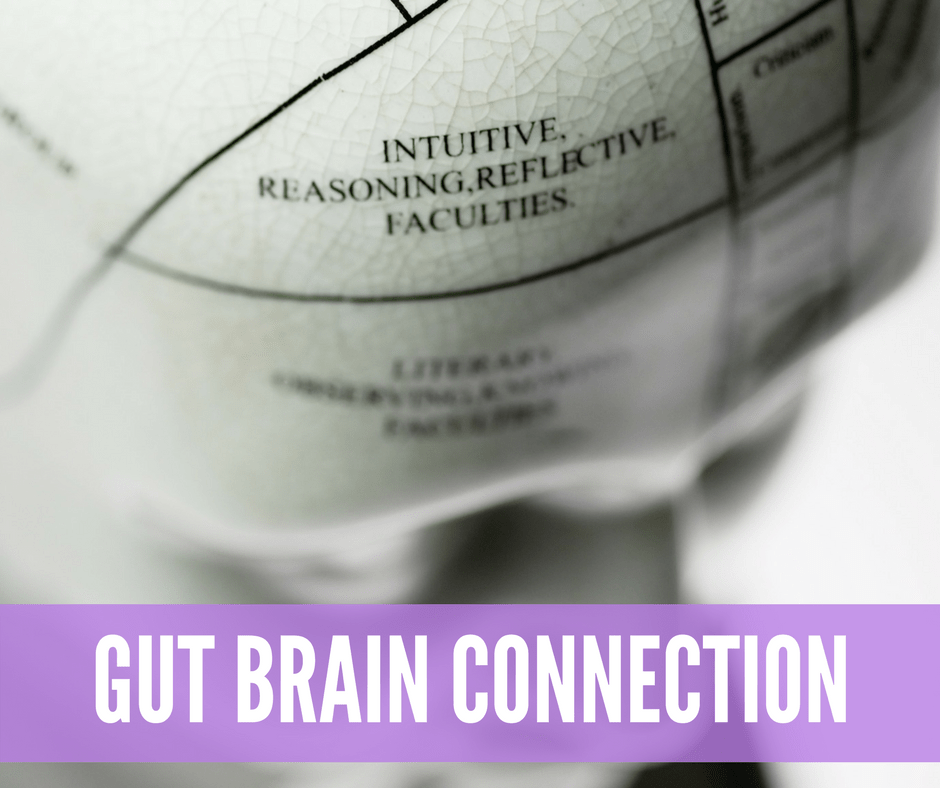
There is much research and published material today about the effect of gut or digestive health on the brain. Indeed, it is common to hear the gut described as our “second brain.”
The GUT-BRAIN CONNECTION simply means that the gut and brain are closely linked and that one can affect the other. For example, when a person feels stress or has anxious feelings, it can cause a physical symptom in the gut such as nausea or butterflies. Also, long-term emotional stress can affect the gut’s ability to function.
The gut’s brain, or the Enteric Nervous System, is located in the tissues lining the esophagus, stomach, small intestine, and colon, and it can function on its own, independent of the brain.
It has a network of neurons, neurotransmitters, and proteins that transmit messages between neurons, and supports cells like those found in the head brain. It also has a complex system that enables it to act independently, learn, remember, and, as the saying goes, produce “gut feelings.”
Ninety percent of the brain’s neurotransmitters, such as Dopamine and Serotonin, are made in the gut, and, as these are important for mental health, a digestive system that is not working optimally will not be able to produce healthy levels of neurotransmitters which, in turn, will leave our brain underequipped to deal effectively with emotional situations we face on a day-to-day basis.
Research shows that many people with low mood also have a poorly functioning digestive system.
But Essential Oils can help. Oils that can help support both the gut and the brain include:
• Petitgrain
• Melissa
• Wild Orange
• Lemon
• Grapefruit
• Rosemary
• Thyme
• Roman Chamomile
• Encouraging Blend
PETITGRAIN is an Essential Oil that is particularly beneficial to both the brain and the gut. It supports the digestive system by stimulating and assisting digestion, alleviating feelings of nausea and vomiting, and helping with flatulence, among other things.
But it is also a very calming and relaxing Essential Oil, and can greatly support the emotions and nervous system by easing feelings of tension and stress, promoting sleep, and bringing balance to the body.
PRACTICAL USES
•Diffuse for a calming and relaxing aroma. Blends well with other citrus oils, Cassia, Cinnamon, Eucalyptus, Geranium, and Lemongrass.
•Take internally to help ease feelings of tension, help calm the nervous system, and promote restful sleep.*
•Before going to bed, add a few drops of PETITGRAIN along with Lavender or Bergamot to pillows and bedding for its aromatic benefits.
•Add one to two drops to water or juice and drink to help support the health of the cardiovascular, immune, nervous, and digestive systems.*
DIRECTIONS FOR USE
DIFFUSION: Use three to four drops in the diffuser of choice.
INTERNAL USE: Dilute one drop in 4 fl. oz. of liquid.
TOPICAL USE: Apply one to two drops to desired area. Dilute with Fractionated Coconut Oil to minimize any skin sensitivity.
CAUTIONS
Possible skin sensitivity. Keep out of reach of children. If you are pregnant, nursing, or under a doctor’s care, consult your physician. Avoid contact with eyes, inner ears, and sensitive areas.
QUESTION – HOW LONG HAS IT BEEN SINCE YOU MADE A DECISION BY “GOING WITH YOUR GUT?” (FEEL FREE TO NOTE THE DECISION, IF YOU LIKE.)